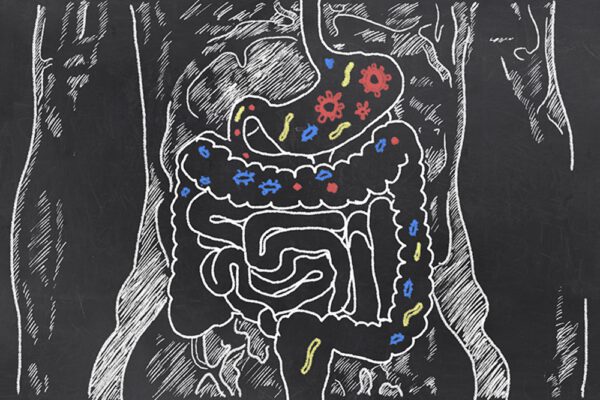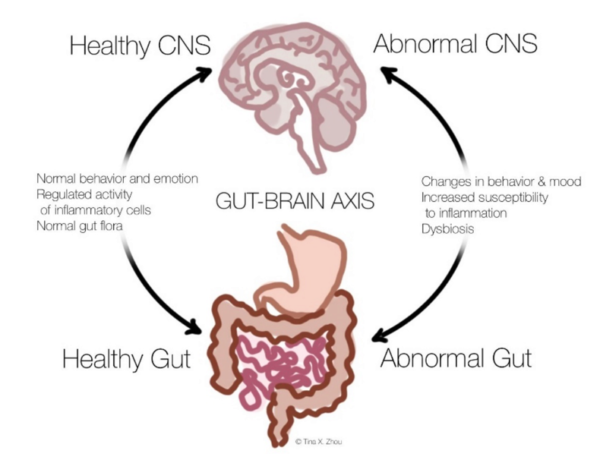How to Improve your Gut Health & Better your Digestive System
You are what you eat... Literally. We tend to take our digestive system for granted. However, it is responsible for your physical and mental well-being. In this article we will explain how you can improve your gut health in order to achieve your health and fitness goals.
The gut microbiome refers to the bacteria, fungi, viruses and other trillions of microorganisms living primarily in your intestines.
Some bad bacteria are usually associated with diseases. However, good bacteria play an important role in your digestion, immune system, weight management, mental health and other crucial functions that contributes to your overall health.
The gut microbiome is now recognized by some as an organ of the human body.
The gut microbiome can also have a positive effect on your intestinal health.
It will help you digest certain foods and can help prevent leaky gut syndrome, which is often caused by an imbalance of your healthy and unhealthy bacteria.
Moreover, it will help prevent disease-causing bacteria from sticking to your intestinal walls.
Your gut health could also play a role in your weight management.
If you have an imbalance of healthy and unhealthy bacteria, this could cause a significant effect on your weight.
Research has shown that a healthy gut microbiome may influence the genes that regulate energy expenditure and storage, which could facilitate weight loss or prevent obesity in humans.
The gut-brain axis (GBA) refers to how the gut and the brain talk to each other.
Certain bacteria can have an influence on neurotransmitters such as: stress, anxiety, mood...
For example, serotonin (often called the happy chemical) is a neurotransmitter that is primarily made in the digestive tract.
We tend to have busy lifestyles and we end up making choices that are not always beneficial to our health. Lack of sleep, poor food choices, too many antibiotics... They can have a damaging effect on our gut microbiome. Which will also damage our heart, immune system, brain and other areas of our lives.
Here are signs to identify an unhealthy gut microbiome:
- Upset stomach: If you're constantly bloated or constipated, it may be because your gut microbiome might have difficulty digesting certain foods.
- Constant fatigue: if you get a good amount of sleep (and you don't have sleep apnea), but you're still feeling chronic fatigue. This could be due to imbalances in the gut microbiome.
- Food cravings: Having a diet high in sugar can lead to an abundance of unhealthy bacteria. This will create a vicious cycle of more food cravings.
- Mood issues: Research suggest that gut inflammation can also be a cause of anxiety and depression.
If you want to be healthy it is important to limit and avoid certain foods/drugs that can damage your gut microbiome.
- Only use an antibiotic if necessary: excessive use of antibiotics can also kill many good bacteria.
- Limit your diet soda intake: research has shown that artificial sweeteners like aspartame and sucralose, can promote the growth of unhealthy bacteria.
- Limit refined/processed foods: processed foods can have a negative impact of healthy bacteria.
Here are ways to improve your gut microbiome:
- Get enough sleep: sleep deprivation can have a damaging impact on your gut health.
- Eat more probiotics: foods containing probiotics can help improve the overall health of your healthy gut microbiome.
- Yogurt
- Kefir
- Pickles
- High fiber foods (fruits, vegetables, legumes...)
- Kombucha
- Pickles
- Tempeh
- Supplements
- Consume more prebiotics: food to promote growth of healthy bacteria.
- Oats
- Banana
- Garlic
- Onions
- Apple
- Asparagus
Your primary goal should be to get a balanced diet that contains less processed food and more whole food.
More info on: What Healthy Foods You Should Have On Your Plate.
Here’s a plan for women you should try:
And for men:
- You are what you eat... Literally.
- The gut microbiome is the microorganisms living primarily in your intestines.
- Your gut microbiome can help your digestion.
- Your gut health can play a role in weight management.
- Gut-brain axis: certain bacteria can have an influence on neurotransmitters.
- Make sure to get enough sleep and prioritize whole food over processed food.
Frequently Asked Questions
A healthy gut microbiome supports digestion, enhances immune function, and can aid in weight management. It influences energy expenditure and storage, which may help with weight loss or preventing obesity.
The gut-brain axis connects the gut and brain, influencing neurotransmitters that affect mood and stress levels. For instance, serotonin, a key neurotransmitter for happiness, is primarily produced in the digestive tract.
Signs of an unhealthy gut include constant bloating, constipation, fatigue despite adequate sleep, and intense food cravings, especially for sugar. These symptoms may indicate an imbalance in gut bacteria.
To improve gut health, focus on a balanced diet rich in fiber, fermented foods, and probiotics. Reducing stress, getting enough sleep, and avoiding unnecessary antibiotics can also help maintain a healthy gut microbiome.
Yes, a balanced gut microbiome can support weight management by influencing genes that regulate energy usage and storage. This can facilitate weight loss and help prevent obesity.
The gut-brain axis is the communication network between the gut and the brain. It plays a crucial role in regulating mood, stress, and overall mental health, highlighting the importance of maintaining gut health for psychological well-being.
To support a healthy gut microbiome, include foods rich in fiber, such as fruits, vegetables, and whole grains, as well as fermented foods like yogurt and kefir. These foods promote the growth of beneficial gut bacteria.

